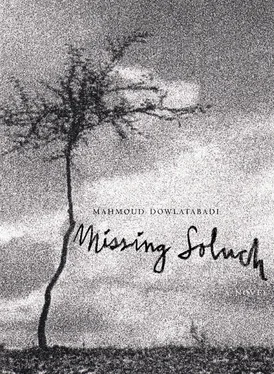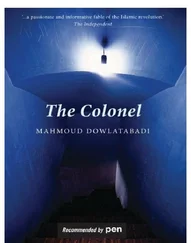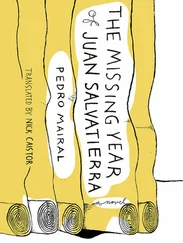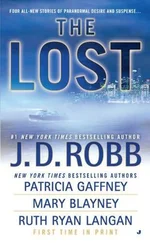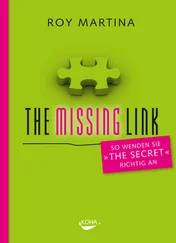A rustling …
Then, a small, faint light. Like a night crawler, on the bottom layer of the well. It was as if it was inside a hole or sunken into the dirt. He tries to look. The sound is coming from these same spots. Small light spots are faintly pulsating. They’re visible, then invisible. The sound stops and starts again. It seems something or some things are moving. It’d be impossible for anyone to see in such a deep darkness. But if you were stuck in the depths of the well as Abbas, you would feel that the essence of all human perception has been granted to you, just so that you can perceive what it is that is rustling beside you.
Oh, God …! Snakes …! They’ve sensed a new prey, inside their lair.
In some situations, it seems as if some people must die and be reborn a thousand times. This was Abbas’ experience. He was circled by snakes. Desert snakes. Ancient snakes. If one was to breathe the fire of its breath at you, you’d be ashes.
So why was Abbas still alive?
That he would die inside the well now seemed a certainty for him. But to know when and how the snakes would come for him was something he couldn’t know. He’d only heard scattered sayings about snakes from those who were snake catchers, herders, farmers, or older villagers with their own experiences of snakes to relate:
“A snake will never harm an innocent person.”
“A snake knows the good of your soul.”
“Never step on a snake’s tail.”
“If you see a snake move away, move away as well.”
“A house snake is a blessing; don’t bother it.”
But none of this was of any use to Abbas now. He was not even able to ask himself what he could do. He couldn’t even pin his hopes on some far-fetched possibility. His mind was simply empty. A silent terror had so thoroughly woven itself into him that he couldn’t think at all. What should he wish for? What could he desire? Above, a merciless night. Beneath the night, the hell of the well. Between the night and the well stands a bloody and enraged camel. With his own battered body, Abbas couldn’t ask himself how to escape? Whom to call to for help?
For one to begin to accept the need to give in, to accept the certainty of giving oneself to death, is certainly an extraordinary experience. And usually, when one happens to consider or give voice to such a sentiment, it is when death is in fact by no means a certainty. When death rears its head, one usually has no time to give a thought to surrendering to it. You don’t have a chance to, either to surrender or to try to defend yourself. In a moment, you become a mass of particles that are all at once finished. Or one can say, it’s like fire, or rather it’s fire itself. You are entirely in flames. You burn quickly and are finished. Even if you’re dried out, nearly dead already, even if you’re at the bottom of the sandy walls of a well and you’ve aged a thousand years. Even if fear has frozen you, so that you can’t move or allow yourself to hear yourself breathe.
Mergan’s son was going to die, quickly and certainly. Even though it was as if he had been dead for hundreds of years and now it was only his ghost that was tracing a silent, hollow outline against the wall of the well before him, embodying something deeper than silence within itself. Oh … if only he could be certain that he was still breathing!
Is it possible for time to freeze in one moment? Of course not … However, a certain illusion sometimes leads one to imagining it has frozen. It is this very moment that ties you to the world by a thread of hair. In another moment, these experiences could be separated. For this reason, at the height of this fusion, one can only sense silence, total silence. But time has not stood still. The well grows slowly lighter by the crack beside the neck of the camel. If you had the strength to move, if you could look above yourself, through this crack, you would see that the sky was filling with light. The star, that only star you could see earlier, was losing its brightness.
The dawn was breaking. Hours had passed; many moments had given their lives. You could now see the camel’s neck more clearly against the mouth of the well, but only once you find it possible to move your head upon your neck. When you’ve escaped your paralysis and the spell upon you has broken and your eyes are no longer frozen on what is just in front of you. What you were staring at, captured by, even as dust has settled on your eyes and draws webs over all you can see. Your gaze has exceeded itself, broadened itself, grown distant. In your eyes the particles around you are not what they are. They have been transformed. Dirt is not dirt. The wall is not a wall. Day is not day. You are transfixed, lost in your gaze. The snakes … two dark snakes, two old snakes, perhaps two vipers can now be seen more clearly. Morning has probably broken.
The snakes were looking at Abbas. But Abbas no longer exists. He has become ashes. One of the snakes moves, slithering slowly. It unwinds its coil softly. It grows longer and longer. It faces Abbas. If only it were possible to say, “Put me out my misery!” If only it were possible to say this sincerely. But this is now impossible; the soul is frozen. The snake approaches, puts its head on Abbas’ knee, and slides over. It slithers softly and settles itself, coiling again and waiting. How long? Not for long, just as long as Abbas’ life is spent, then it will no doubt move on. It slithers over his naked belly, slides over his chest, and on his shoulder begins to circle around his neck, passing through his hair. Then heading to the wall, it softly departs from Abbas’ body and stops at the edge of the floor. Abbas no longer felt anything. He was blind, deaf, dumb, and numb. A corpse plunged into a cold sweat.
* * *
Hey … Hey … Abbas … Ahay!
Hoy … Hoy … Abbas … Hey!
Ahay … Aha … Abbas … Ahay!
The drunken cry of the camel sounded both near and far over the fields. The near and distant sounds of the field were caught in the camel’s cry. Sounds, not those sounds that are familiar, but those that are confused, incredible. The onset of sounds, cries, wails, prayers, shouts. The long shadows of hawks, vultures.
How much time has passed? How many suns?
The sounds came from another world. The world that they spoke of, the Day of Judgment. The so-called day of the fifty-thousandth year. The blistering hot day that they say will find mothers seeking their children and not finding them, brothers seeking brothers, children their mothers and fathers. The day of fifty thousand years! The day no one is no one to anyone. Where one hand will not recognize the other, nor one eye the other. Abbas is dead, and he is dragging his battered body across the hot desert sands of the Day of Judgment. Abbas is dead and hears the lamentations of his mother, brother, sister, and father from within his grave. But then Mergan pierces a crack into the grave; Mergan’s shouting and crying is heard. Mergan on the year of the fifty-thousandth year. The refugees of the hot desert, carrying the load of sins on their shoulders, beneath the hot sun. The sun of hell’s fire. The dead have raised themselves from their graves and are silent. The day of reckoning. Hands are shaking in all directions. Hands and shoulders uncovered. Uncovered bodies writhe against each other, their mouths, tongues, cries, all silent. Fear and terror. Bodies in shrouds. Thirst. Panting from thirst. Fire rains from the sky. Abbas is dragged from the grave. He’s uncovered, nude. The sun. The desert is panting. They encircle him; the camel is dead. Its body is bloated. The poison from the snake’s venom has bloated it. The Sardar is beating himself with his fists. The camel lies to the side of the well; its legs are stiff. Hajer is hiding herself behind Ali Genav. Abrau cannot bring himself to look at his brother. Ali Genav cannot remove his eyes from the shock. Mergan can’t believe it. No! This is not her Abbas! She comes forward. Abbas is at the edge of the well. He doesn’t move. He’s spellbound. Paralyzed. The sun shines. The hairs on Abbas’ head are all entirely white.
Читать дальше
